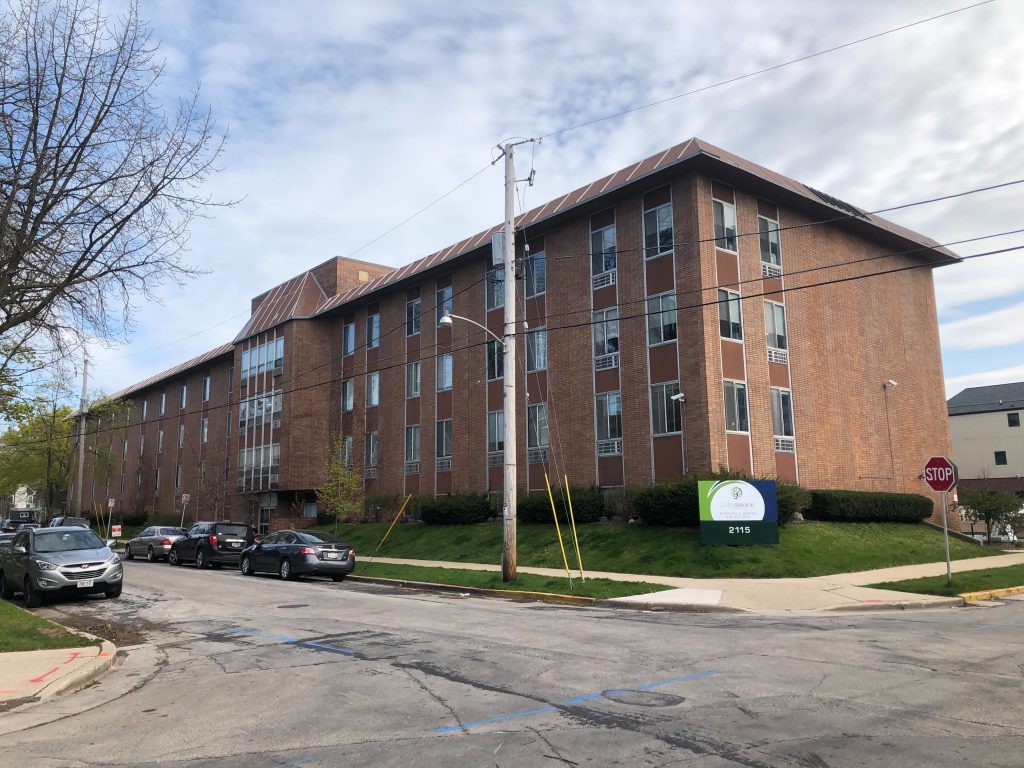Bill Would Triple Eviction Notice Period For Long-Term Care Facilities
Shift from 30 to 90 days would give more time to find new housing.
A bill making its way through the state Legislature aims to give families more times to help aging relatives find a new place to live when facing eviction from long-term care facilities.
The legislation would require nursing homes and assisted living facilities to give residents, family members and legal guardians a 90-day written notice of eviction or relocation, or if they stop participating in the state’s Medicaid program. Current state law requires a 30-day notice.
A state Senate committee recently held a public hearing on the bill, which still needs a committee hearing in the Assembly. Critics say the proposal addresses a symptom of a wider issue facing long-term care facilities: insufficient reimbursement from the Family Care program.
Green Bay resident Ann Marra dealt with the stress of having to help a loved one find a new place to live in a relatively short time span earlier this year.
On Jan. 30, she received a notice from Emerald Bay Retirement Community & Memory Care in Brown County’s Village of Hobart that said the facility where her mother lived would no longer accept Medicaid funding. The center said it was making the change because of low reimbursement from the Family Care program, rising labor costs and inflation.

Ann Marra, left, smiles with her mother, Shirley Holtz. Holtz lived at Emerald Bay Retirement Community & Memory Care in Brown County’s Village of Hobart until the facility evicted all of its Medicaid residents in February. Holtz died in April. Photo Courtesy of Ann Marra
Marra said her mother, Shirley Holtz, had been on Medicaid for about three years when she received the eviction notice.
“It was awful — probably one of the worst things that happened in our lives,” Marra said.
Holtz eventually moved to a different facility in the Brown County area, but died roughly three weeks after the move, Marra said. She isn’t the only Wisconsinite who’s had to move a loved one from a long-term care facility in recent years. Between fall 2022 and April 2023, there were at least 50 Medicaid-related evictions in Wisconsin, according to The Washington Post.
‘A good start’
Marra said she believes extending the notice period from 30 days to 90 days would have helped relieve some of the stress the family endured during the process.
“The 90 days rather than the 30 days is a good start in helping people,” she said. “I think that what they did in evicting (residents) shouldn’t happen. I think that Medicaid should be able to increase their payment every year that it’s needed.”
State Sen. Robert Cowles, R-Green Bay, is one of the lawmakers who introduced the bill. He said constituents reached out in response to Emerald Bay’s evictions. Cowles said the stress caused by those moves is “dramatic,” and said he’s experienced a similar situation with a member of his family.
“There has to be some consideration to the patients and the families to deal with this in a fair amount of time,” he said. “I’m sorry, (but) 30 days is not enough time to deal with this. Anybody that’s been through it knows that this is not going to happen real quick.”
Pochowski also said providers typically stop participating in the Family Care program “as a last resort.” Right now, he said there’s no real appeals process for providers when they feel reimbursement rates are too low.
“The true problem really is the Family Care program, how it’s set up and how it runs,” Pochowski said. “Essentially, the Family Care program does not reimburse the true cost of providing quality care and services to residents on a daily basis. It does not reflect the increasing costs that we continue to see.”
He said providers are working with the state Department of Health Services to establish a rate setting program that would provide inflationary increases to reimbursement, but it hasn’t been finalized.
Listen to the WPR report here.
State bill would require long-term care facilities evicting residents to give more notice was originally published by Wisconsin Public Radio.
If you think stories like this are important, become a member of Urban Milwaukee and help support real, independent journalism. Plus you get some cool added benefits.






















Would accepting the Medicaid Expansion funds help to address the financial problems? Vos and company have controlled the legislature for over 10 years. In that time, the primary strategy has been to line the pockets of their wealthy donors at the expense of everyone else. Even when the State has a surplus, they refuse to address the pressing needs of Wisconsinites who actually pay taxes. How long did it take them to even address the broken revenue sharing formula?
Rather than address the funding problems of family care, RRRs want to mandate eviction notices. How does a 3 month notice help when it can take 6 months or more to find suitable housing? What do RRRs propose to do about organizations that are no longer accepting family care residents? How does a 90-day eviction notice address the dwindling number of safe and accessible senior housing? The irony of the situation? Those who are most hurt by short-sightedness of RRR? Rural Wisconsin residents, particularly those in districts rendered “safe” by Vos and company.
RRRs are more interested in regulating individuals’ behavior than addressing the problems facing Wisconsin. RRRs are not about governance. They are about power–particularly power over the “unworthy others.”